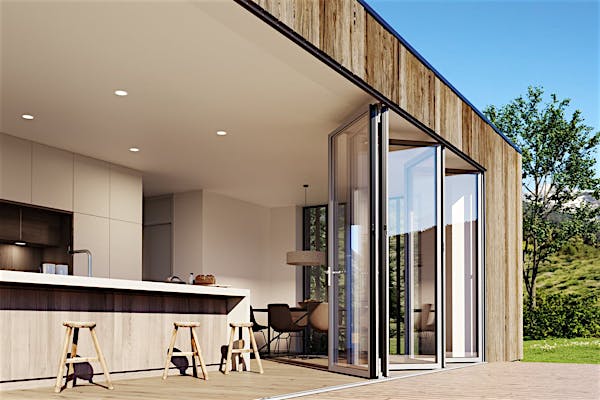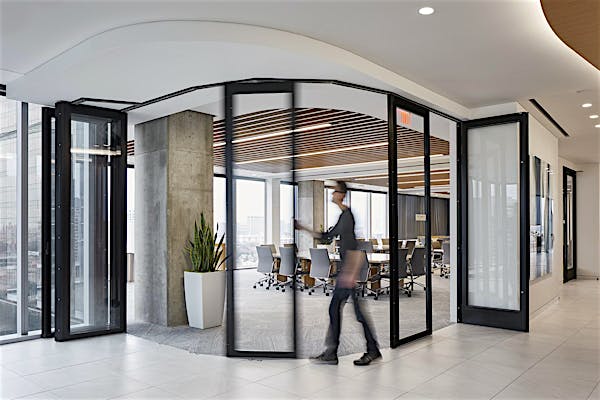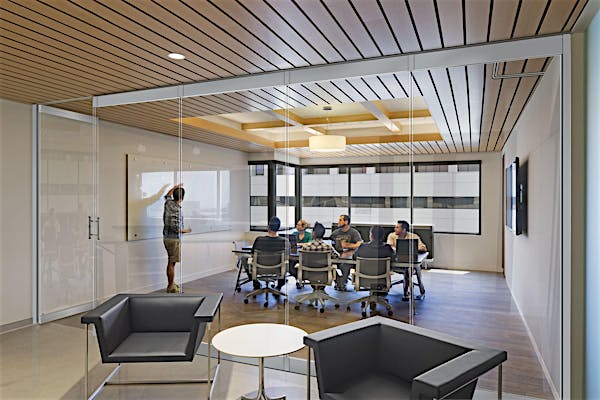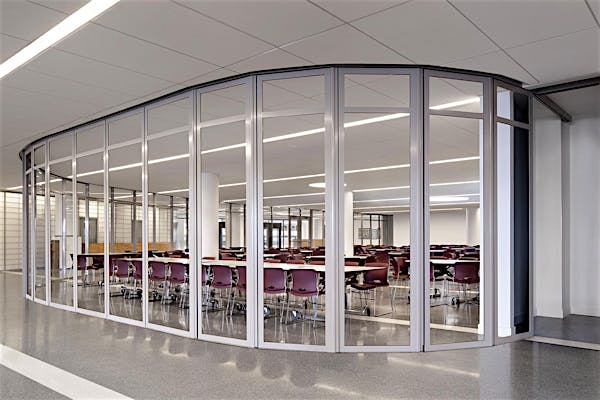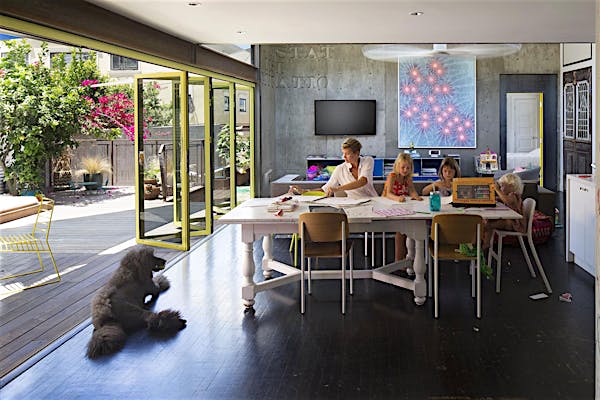
Improving indoor air quality is an important consideration for any enclosed space. We spend almost 90% of our time indoors, yet we may not know that the air quality is often poor and unhealthy.
According to the United States EPA, residential indoor air pollution can be a more significant health risk than the pollution found in the air around industrial areas. Maintaining good air quality indoors protects you from irritating pollutants and potentially dangerous gases like carbon monoxide and radon.
Poor indoor air quality (IAQ) can contribute to many unfortunate health problems such as headaches, dizziness, fatigue, asthma, or even respiratory diseases. Poor ventilation can lead to the growth of mold, mildew, and amplify the proliferation of other toxins that may already reside within the space.
There’s plenty you can do to reduce the number of toxins within your space. Here are a few ideas on how to improve indoor air quality in your home.
1. Use High-Quality Paints to Reduce Toxins in the Air
Insist on using low or no-VOC when painting your interiors. Volatile organic compounds, which are most easily described as harmful vapors or gases. They are terrible to inhale and should be avoided whenever possible.
2. Cleanse the Air with Houseplants
When considering how to improve indoor air quality, think about growing some plants indoors! Plants use the pores on their leaves to absorb carbon and other gases, which in turn provides the energy for photosynthesis and cleans the air in the process.
3. Improve Indoor Air Quality in the Home by Ditching the Carpet
Invest in wood floors, stone, or concrete. Any relatively non-porous surface is an improvement over carpet. Carpet is often made with harmful chemicals, such as formaldehyde. Carpet also collects potentially harmful things like dust and various pollutants even when adequately cared for.
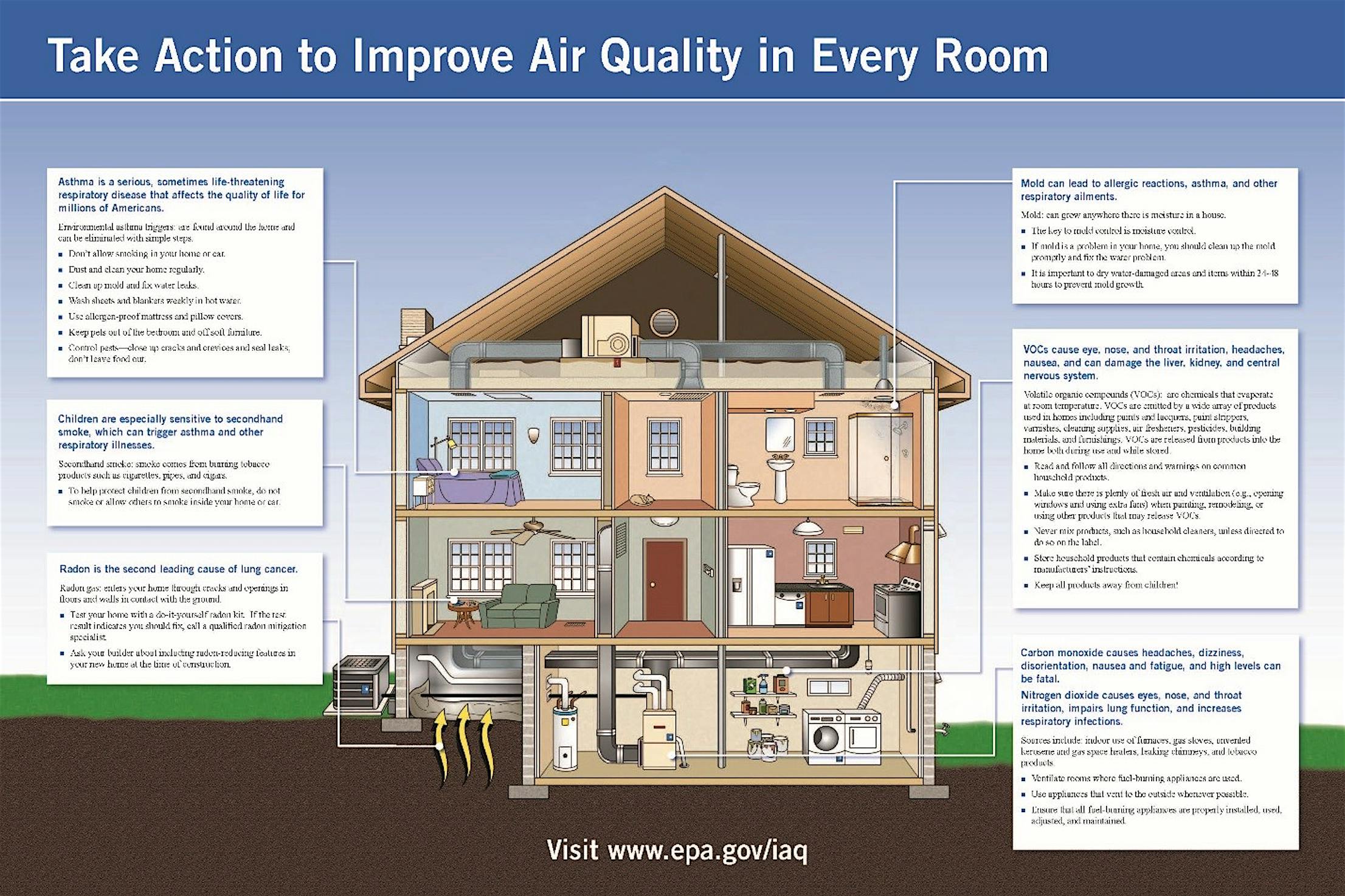
4. Ventilate, Ventilate, Ventilate
Poor ventilation can be hazardous to your health. A poorly ventilated room contains high levels of carbon dioxide and low levels of oxygen. As a result, you may experience fatigue. Additionally, poor ventilation can lead to illnesses such as headaches and fatigue, and can increase susceptibility to colds and flu.
Be sure to install fans and air conditioners in areas that tend to trap humidity, and open bathroom windows if you have them.
Opening a window or a door provides mildly adequate fresh air circulation. Install a NanaWall system, and you can open an entire stacking glass door or accordion glass door to the outdoors, which will allow for exponentially better ventilation.
5. Clean Duct Work and Service HVAC Systems
Typical heating and cooling systems are efficient at clearing out damp air. However, they tend to recirculate pollutants. Common pollutants include secondhand smoke and combustion pollutants from things such as space heaters, gas stoves, water heaters, and dryers.
Regular HVAC maintenance not only helps improve indoor air quality but helps with energy efficiency and may prevent malfunctioning.

However you decide to address the IAQ of your space – be it a home, office, or establishment, being aware of contributing factors is the first step to creating a healthier indoor environment.
Questions about how NanaWall systems can improve indoor air in your space? Contact us!
